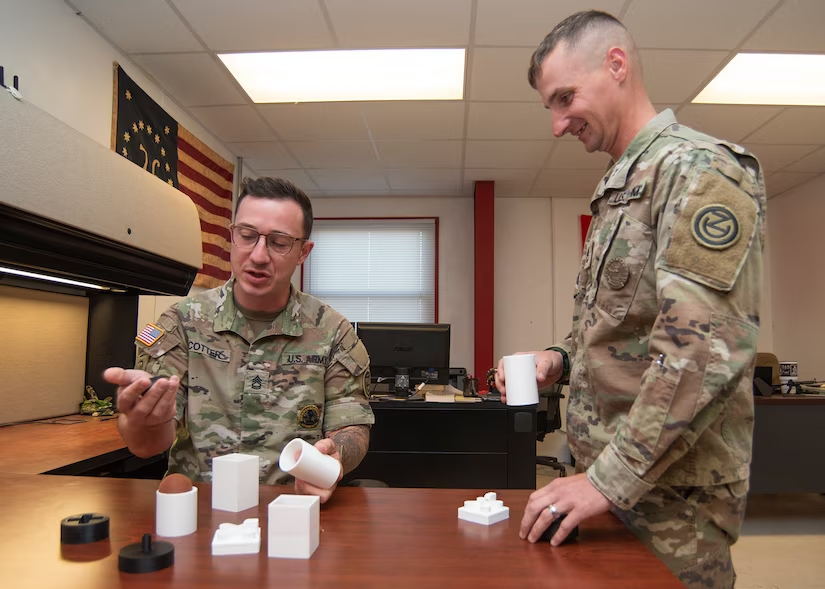In October, Army Reserve Soldiers from the 102nd Training Division participated in a pioneering trial at Fort Leonard Wood, Missouri. Their objective: to test 3D printed containers designed to enhance explosive effects. This project, initiated at Fort Campbell’s EagleWerx Applied Tactical Innovation Center, sought to optimize the use of current explosives through better containment designs. The Counter Explosive Hazards Center (CEHC) led the effort, marking the first collaboration of its kind with the 102nd.


The testing involved comparing the effects of nearly 20 different 3D printed containers. Each explosion’s impact was meticulously measured to identify the most effective designs. The benefits of this technology extend beyond improved explosive effects; it also promises cost efficiency, enhanced safety, and greater modularity for the Army.
Justin Fanatia, a CEHC training specialist, emphasized the strategic significance of this technology. It allows for adaptable and scalable explosive charges, essential for rapidly evolving military operations. This adaptability not only increases effectiveness but also enhances soldier safety.
The training program integrates advanced explosive techniques, encouraging soldiers to think creatively and apply their knowledge in various contexts. This approach aligns with the U.S. Army’s broader goal of fostering innovation and adaptability among its forces. With most major installations equipped with innovation or 3D printing labs, the knowledge gained from this training can be directly applied in various operational settings.
Future plans involve further testing to validate and refine these techniques, ensuring their applicability in diverse combat scenarios. The ultimate aim is to establish a baseline of effective charges for use in any future battlefield. As the technology matures, we can expect a new era of customizable, efficient, and safer explosive solutions on the battlefield. This innovation not only enhances combat effectiveness but also significantly contributes to soldier safety and operational versatility.
Source: usar.army.mil
Come and let us know your thoughts on our Facebook, X, and LinkedIn pages, and don’t forget to sign up for our weekly additive manufacturing newsletter to get all the latest stories delivered right to your inbox.




